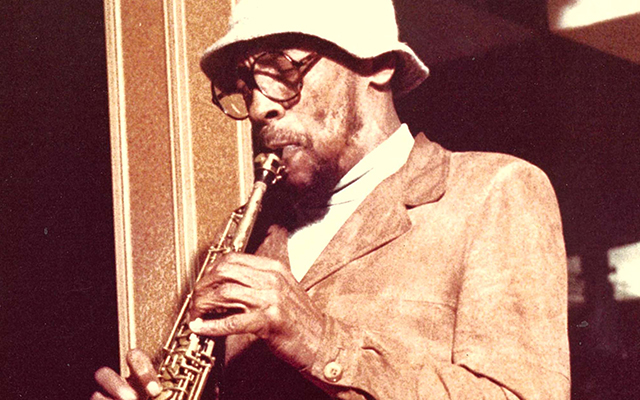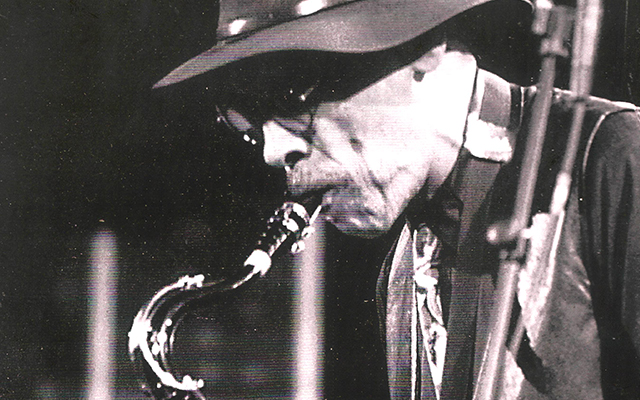Sam Rivers Archive
The University of Pittsburgh Library System is pleased to announce the acquisition of the Sam Rivers Archive as part of the Center for American Music’s holdings. As a jazz saxophonist, flutist, and pianist, Rivers (1923–2011) earned worldwide renown in traditional and avant-garde jazz. As an entrepreneur, he nurtured the careers of many younger musicians.
Raised in Chicago and Little Rock, Rivers attended the Boston Conservatory from 1947 to 1953. He moved to New York in the 1960s and joined the Miles Davis Quintet, appearing on the album Miles in Tokyo (1964). After signing with Blue Note, he released his first album as bandleader, Fuchsia Swing Song (1964), which includes the ballad “Beatrice,” his best-known tune. Rivers followed his debut album with Contours (1965) and A New Conception (1966), also released on Blue Note.
Increasingly interested in experimental music, Rivers signed with the avant-garde label Impulse!, which released Streams (1973), Hues (1974), Crystals (1974), and Sizzle (1976). Around this time, he and his wife, Beatrice, transformed a loft in NoHo into one of the most important studios in New York’s loft jazz scene. A rehearsal, performance, and recording space, Studio Rivbea provided a venue for experimental music and younger musicians, including William Parker, Anthony Braxton, Dave Burrell, David Murray, Jemeel Moondoc, and many others.
Rivers performed at Rivbea in big bands, wind ensembles, and small combos. In the years after Rivbea closed in 1978, he continued to perform and record with various ensembles, including groups led by Dizzy Gillespie. In 1991, Rivers moved to Orlando, Florida, where he began performing with local musicians. He continued to tour and frequently returned to New York to perform until shortly before his death.
The archive joins the ULS’s esteemed jazz collections that contribute to making the University of Pittsburgh a major destination for jazz studies. Michael Heller, Associate Professor in the Music Department, remarked the Jazz Studies program is “ecstatic for the opportunity to engage with the legacy of this legend of Black American music.”
Heller said, “Sam Rivers was a jazz icon in so many different capacities. He was a saxophone virtuoso, a fascinatingly complex composer for large and small ensembles, and a self-empowered visionary of musician-organized productions and initiatives. His archive is equally monumental, meticulously documenting all of the facets of his incredible career.”
The archive includes roughly forty boxes documenting Rivers’ career from the 1950s until his death. Highlights include over 500 performance-ready scores, drafts of scores documenting his creative process, over 300 unreleased audio and video recordings from 1957 to 2007, and thousands of clippings, posters, and programs.
If you would like to help support the Sam Rivers Archive, please consider making a financial donation:
Give to Sam Rivers Archive Fund
Your donation will support the preparation of the archive for research access, including selected digitization to make the material more widely accessible. Funds will also support outreach and engagement activities promoting the Sam Rivers Archive for educational and scholarly use.
Contact:
Ed Galloway, Associate University Librarian
Archives & Special Collections
edwardg@pitt.edu
412-648-5901






